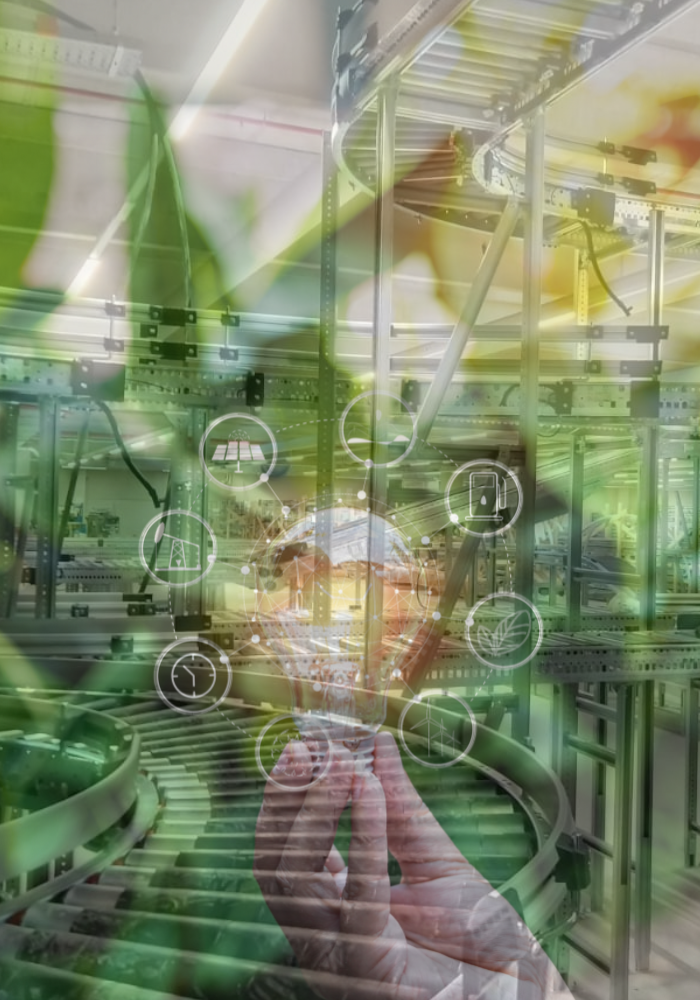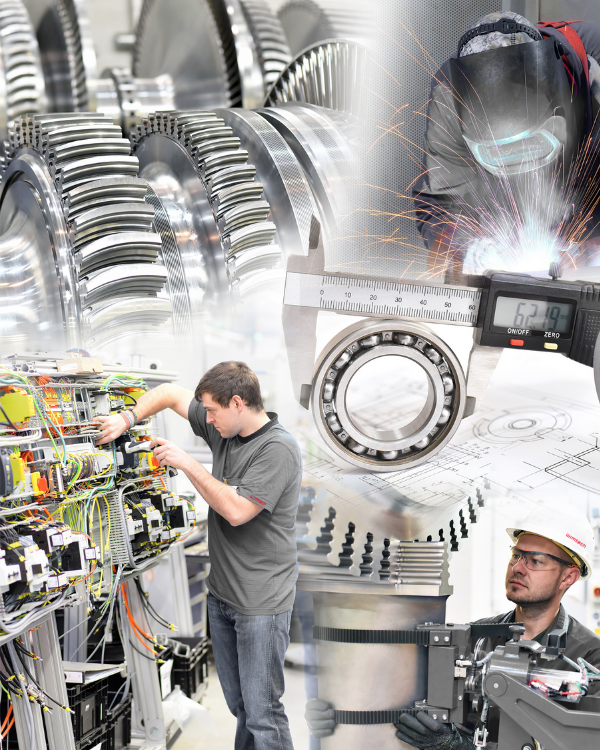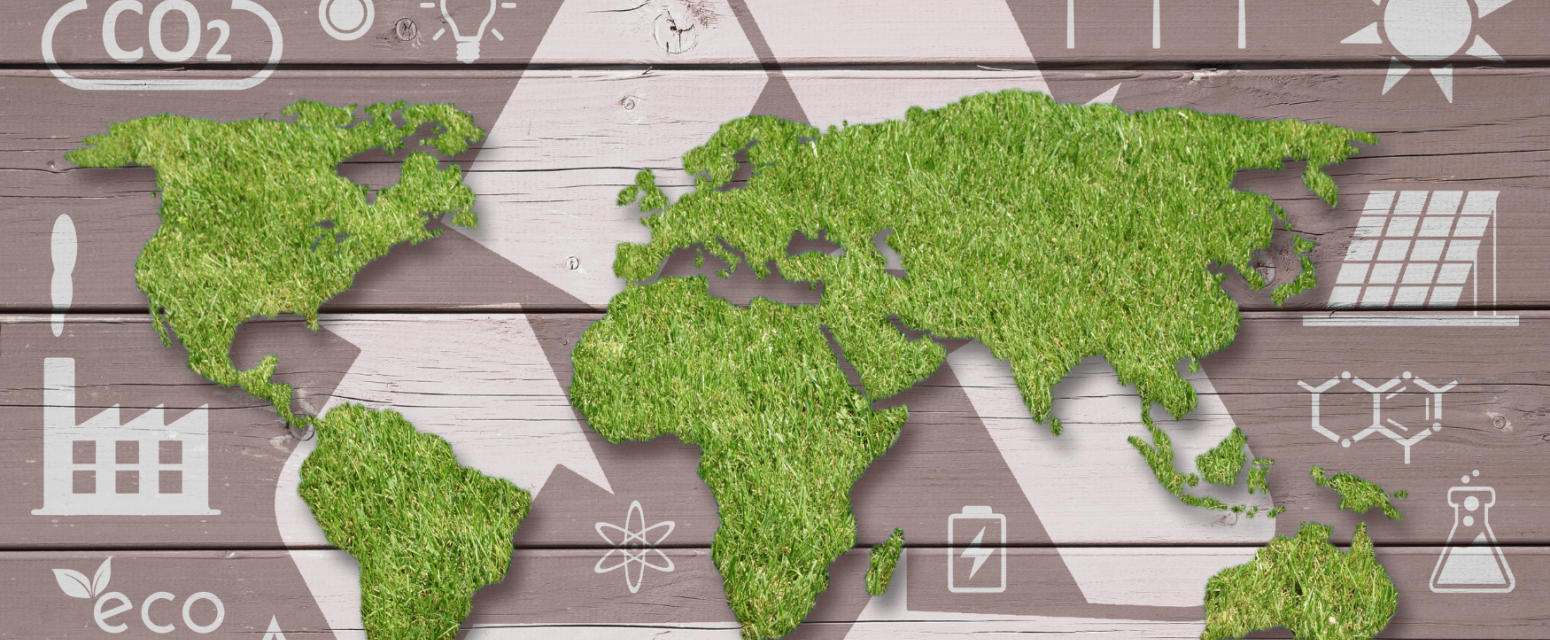In times of growing environmental pollution and resource scarcity, the topic of sustainability is becoming more and more of a focus - also in plant engineering. The importance of environmentally friendly and efficient technologies is increasingly being recognized and is opening up new paths. Fully automated systems, innovative methods in mechanical and electrical assembly and the digitalization of processes are becoming integral parts of production and assembly processes. In this article, we examine various sustainable approaches and alternative paths in plant engineering and take a look at the advantages of digitalization and the change towards Industry 4.0.

Conveyor technology: combining efficiency and sustainability
Conveyor technology plays a central role in modern industry by moving materials and products within plants. There are numerous opportunities here to improve sustainability:
- Energy-efficient drives: The use of energy-efficient motors and drives can significantly reduce energy consumption. Frequency converters make it possible to optimally adjust the speed of conveyor belts and thus save energy.
- Modular systems: Modular conveyor systems can be flexibly adapted and expanded. This extends the service life of the systems and reduces material consumption.
- Lightweight construction: By using lighter materials, the weight and thus the energy consumption of the conveyor systems can be reduced.
- Automated logistics processes: Automated conveyor systems powered by intelligent control technologies increase the efficiency and accuracy of material movement. This reduces energy consumption and minimizes errors that could lead to material waste.
- Intralogistics: Efficient internal logistics systems ensure that materials and products are transported via the shortest route and with minimal energy consumption. This contributes significantly to reducing the ecological footprint.

Sustainable production and assembly methods
In the field of mechanical assembly, there are various approaches to increase sustainability:
- Additive manufacturing: Also known as 3D printing, this method allows the production of complex parts with minimal material waste. This is particularly beneficial for the production of customized components.
- Recycling and reuse: Mechanical components can often be reused or recycled, reducing waste and increasing resource efficiency.
- Use of sustainable materials: The use of environmentally friendly and recyclable materials helps to reduce the ecological footprint.
- Optimization of assembly processes: Especially in the area of contract manufacturing, time and resources can be saved by using specialized assembly teams.

Efficiency through digitalization and automation
Digitalization has the potential to significantly improve sustainability in the field of electrical assembly:
- Smart grids and intelligent control systems: By using intelligent control systems, electrical systems can be operated more efficiently. This reduces energy consumption and optimizes the use of renewable energies.
- Predictive maintenance: Using sensors and data analysis, maintenance needs can be identified early and failures avoided. This increases the service life of the systems and reduces resource consumption.
- Digital twins: Digital images of plants enable detailed planning and optimization before actual production begins. This reduces errors and material waste.
- Automation and robotics: By using robots and automated systems, production processes can be made more efficient and use resources more efficiently.

A look into the future
By using energy-efficient technologies, digital solutions and sustainable materials, we can significantly reduce the ecological footprint of plants. The shift towards Industry 4.0 also opens up new opportunities for sustainable and future-oriented production.
- The introduction of a circular economy model helps to conserve resources and minimize waste. Products are designed so that they can be recycled or reused at the end of their life.
- Another approach is to build plants that meet their own energy needs through renewable energy sources . Building energy-self-sufficient plants could reduce dependence on external energy sources and sustainably reduce the carbon footprint.
- Optimizing logistics processes within plants can lead to a reduction in transport routes and thus to a reduction in emissions.
WIMTECH - Focus on sustainability
At WIMTECH, we attach great importance to sustainable working methods and environmental awareness. Our partnerships are carefully selected, and we work with companies and suppliers who care about the environment as much as we do. By digitizing internal workflows and project management processes, we avoid wasting paper and resources.
Our assembly hall has been equipped with the latest machines and tools to enable us to work efficiently in the construction of individual control cabinets and in the contract manufacturing of complex assemblies. The continuous training of our employees in terms of sustainability also plays a central role. We also rely on high-quality work clothing and equipment, which make a further contribution to environmental protection through their durability.
We are aware of our responsibility - for us, sustainability in plant engineering is not just a current trend, but a necessity to protect the environment.
Contact us
With our know-how in the areas of plant engineering and electrical engineering, the necessary human resources and a global network, we are ready for your project!


